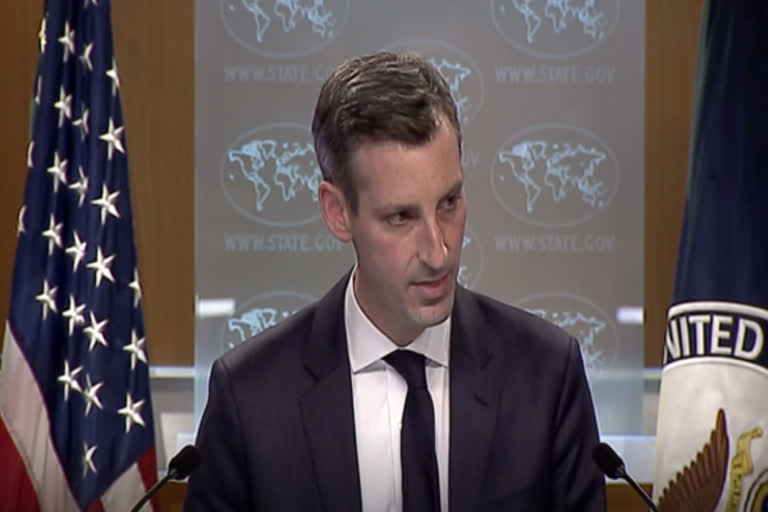Washington: The US State Department is defending its delisting of Yemen's Houthi rebels as a terrorist group.
"The secretary's intent to delist is due as I said before, to the humanitarian consequences of this last minute designation," said State Department Spokesperson Ned Price.
"We can do two things at once."
The Biden administration notified Congress that it would remove the Houthis from its list of “foreign terrorist organizations," a designation that comes with severe U.S. sanctions.
It also came just three days after President Joe Biden ordered an end to U.S. support for the Saudi-led offensive military operations against the rebels.
Friday’s delisting had been hailed by relief agencies who had slammed the Trump administration for putting the Houthis on the list in its waning days in office. Critics said the designation would exacerbate what the U.N. calls the world’s worst humanitarian crisis by hindering aid shipments to a population on the brink of famine.
Read: US warns Yemen’s Houthi rebels after terrorism delisting
Yemen’s war began in September 2014, when the Houthis seized the capital Sanaa and began a march south to try to seize the entire country. Saudi Arabia, along with the United Arab Emirates and other countries, entered the war alongside Yemen’s internationally recognized government in March 2015.
The war has killed some 130,000 people, including over 13,000 civilians slain in targeted attacks, according to the Armed Conflict Location & Event Project.
Price also spoke Monday about Myanmar’s new military rulers signaling their intention to crack down on opponents of their takeover, issuing decrees that effectively banned peaceful public protests in the country’s two biggest cities.
The restrictive measures were ordered after police fired water cannons at hundreds of protesters in the Myanmar capital, Naypyitaw, who were demanding the military hand power back to elected officials. It was just one of many demonstrations around the country.
Rallies and gatherings of more than five people, along with motorized processions, were banned, and an 8 p.m. to 4 a.m. curfew was imposed for areas of Yangon and Mandalay, the country’s first- and second-biggest cities, where thousands of people have been demonstrating since Saturday.
AP



